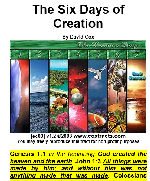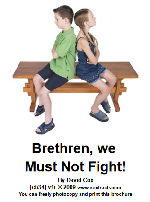Ads
Contents
Good Shepherd Sacrifices
Good Shepherd Sacrifices
By Pastor David Cox
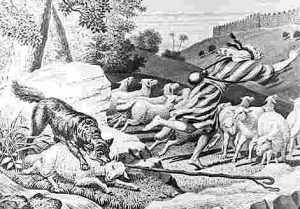 Jesus described the good shepherd in John 10:7-18 (below). The concept in Jesus’ mind is one of being essential and beneficial to the sheep. The shepherd is paired with the sheep. In this article I want to pull some ideas from this teaching to apply them to false prophets.
Jesus described the good shepherd in John 10:7-18 (below). The concept in Jesus’ mind is one of being essential and beneficial to the sheep. The shepherd is paired with the sheep. In this article I want to pull some ideas from this teaching to apply them to false prophets.
See Tag: http://www.theologicalsystems.com/tag/money-and-the-minister/
John 10:7 Then said Jesus unto them again, Verily, verily, I say unto you, I am the door of the sheep. John 10:8 All that ever came before me are thieves and robbers: but the sheep did not hear them. John 10:9 I am the door: by me if any man enter in, he shall be saved, and shall go in and out, and find pasture. John 10:10 The thief cometh not, but for to steal, and to kill, and to destroy: I am come that they might have life, and that they might have it more abundantly. John 10:11 I am the good shepherd: the good shepherd giveth his life for the sheep. John 10:12 But he that is an hireling, and not the shepherd, whose own the sheep are not, seeth the wolf coming, and leaveth the sheep, and fleeth: and the wolf catcheth them, and scattereth the sheep. John 10:13 The hireling fleeth, because he is an hireling, and careth not for the sheep. John 10:14 I am the good shepherd, and know my sheep, and am known of mine. John 10:15 As the Father knoweth me, even so know I the Father: and I lay down my life for the sheep. John 10:16 And other sheep I have, which are not of this fold: them also I must bring, and they shall hear my voice; and there shall be one fold, and one shepherd. John 10:17 Therefore doth my Father love me, because I lay down my life, that I might take it again. John 10:18 No man taketh it from me, but I lay it down of myself. I have power to lay it down, and I have power to take it again. This commandment have I received of my Father.
Jesus as the Door
John 10:7 Then said Jesus unto them again, Verily, verily, I say unto you, I am the door of the sheep. John 10:8 All that ever came before me are thieves and robbers: but the sheep did not hear them. John 10:9 I am the door: by me if any man enter in, he shall be saved, and shall go in and out, and find pasture.
The concept of a door is difficult in some ways. Doors are normally an access point into a building or room that one is not really able to enter otherwise. Of course, people can always enter a building or room through a window, but on purpose, windows are not made for that purpose. Also, we remember the friends of the sick man that tore up the roof in order to gain access for their friend to Jesus.
Jesus as the good shepherd has the concept of goodness (“and find pasture” v9). This goodness is part of his part in life, to benefit the sheep. But this goodness is only accessible by a single “door”, and that is Jesus. There is only one way to be saved, and that is through Jesus Christ. When we accept multiple ways to heaven or multiple gospels, then we lower the only true way to heaven, Jesus.
Jesus in his position and role of “being the only door”, the only legitimate door, takes on a character of uniqueness. This uniqueness is what the robber and the thief try to take away from. They want the good that only Jesus has, but they want it without going through the legitimate door that God has set up. They can enter just like anyone else, but their purpose is to go about things in an illegitimate way.
More articles of Interest
Minister’s Just Salary
A Minister’s Healthy Mindset
Worldliness is our Enemy
Elements of “Free from Covetousness”
Ministers: Rejecting Riches
Robbers and Thieves
John 10:10 The thief cometh not, but for to steal, and to kill, and to destroy: I am come that they might have life, and that they might have it more abundantly.
The express purpose of “robbers and thieves” is that they are spoilers. That is, they seek to destroy what God is building and providing. Rather than enjoy the good God has to offer, they get pleasure in keeping others from entering into that good. They will take away (rob) if they can, and if they cannot, they will destroy. False prophets want to take over the local church and run it into the ground. But if they cannot do that because some men of God won’t let them, (usually a shepherd type), then they will seek to destroy through gossip, backbiting, in-fighting, and such.
God desires that we have life, and that we have it abundantly. This richness of life is a precious thing, and it is easy to spoil and lose. This is the bounty that the false prophet versus the good shepherd work out through their fighting between themselves.
The Good Shepherd versus the Hireling
John 10:11 I am the good shepherd: the good shepherd giveth his life for the sheep. John 10:12 But he that is an hireling, and not the shepherd, whose own the sheep are not, seeth the wolf coming, and leaveth the sheep, and fleeth: and the wolf catcheth them, and scattereth the sheep. John 10:13 The hireling fleeth, because he is an hireling, and careth not for the sheep.
One of the key distinctives that separates a good shepherd from a hireling is commitment to the sheep. A good shepherd personally sacrifice his own welfare and well-being for the safety and well being of the sheep. One of the manifestations of this is that the good pastor will take personal financial loss when he deems it necessary for the well-being of his sheep. This is seen by him taking his own money to give to a needy person in his fold.
The Bible clearly sets the rule that the church, the people of God, are to sustain financially the man of God that ministers to them.
1Cor 9:7 Who goeth a warfare any time at his own charges? who planteth a vineyard, and eateth not of the fruit thereof? or who feedeth a flock, and eateth not of the milk of the flock? 1Cor 9:8 Say I these things as a man? or saith not the law the same also? 1Cor 9:9 For it is written in the law of Moses, Thou shalt not muzzle the mouth of the ox that treadeth out the corn. Doth God take care for oxen? 1Cor 9:10 Or saith he it altogether for our sakes? For our sakes, no doubt, this is written: that he that ploweth should plow in hope; and that he that thresheth in hope should be partaker of his hope. 1Cor 9:11 If we have sown unto you spiritual things, is it a great thing if we shall reap your carnal things? 1Cor 9:12 If others be partakers of this power over you, are not we rather? Nevertheless we have not used this power; but suffer all things, lest we should hinder the gospel of Christ. 1Cor 9:13 Do ye not know that they which minister about holy things live of the things of the temple? and they which wait at the altar are partakers with the altar? 1Cor 9:14 Even so hath the Lord ordained that they which preach the gospel should live of the gospel.
Granted in cases of extremely unspiritual and contencious people, the minister sometimes works a secular job instead of pressing this ministerial right as Paul explains int he following verses after verse 14. But nonetheless the principle of God is that the minister should dedicate his full time to the work of God, and he should live of this.
It is discouraging to see Pastors use this privilege of support, and yet it is like the entire week is for their personal hobbies and play things, and as long as they throw some kind of sermon together for Sunday, everything is okay.
But although those pastors will have to give an account to God for their time and energy, that is not necessarily a false prophet, just an unwise steward.
A false prophet is a person who may take advantage of the resources of a church, but he is deliberately “spoiling” it, consuming it on his own self, or his own interests. Many a false prophet has shown himself to be measured (like a good man of God) in his personal salary, but he takes his church on a merry journey when it comes to building projects, Christian schools, camps, radio stations, Bible institutes, etc. These things are marginal ministries, but they are ego boasters for his own ego. This is seen by how he is prominient in the promotion, in the administration and running, in the authority over these things.
Good Shepherd is known by the sheep
John 10:14 I am the good shepherd, and know my sheep, and am known of mine.
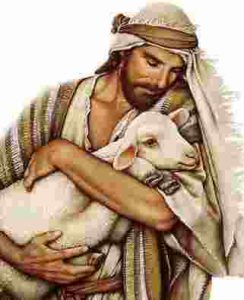 A key element of a good shepherd versus a false prophet is that a good shepherd regularly feeds his sheep good things from the Word of God. These things benefit their spiritual life, grows them spiritually, and “fixes” what are their spiritual problems. The principal problem of most people is not giving all their money to the church. While many are covetous, the Pastor of many churches show the same thing. Taking their money does not fix this. They continue to follow the high lifestyle of the pastor.
A key element of a good shepherd versus a false prophet is that a good shepherd regularly feeds his sheep good things from the Word of God. These things benefit their spiritual life, grows them spiritually, and “fixes” what are their spiritual problems. The principal problem of most people is not giving all their money to the church. While many are covetous, the Pastor of many churches show the same thing. Taking their money does not fix this. They continue to follow the high lifestyle of the pastor.
The sheep “know” their shepherd by various means. The most important is because of his character. He cares for them, and this is ingrained into their thinking and character. They respond to that one who really cares for them. This is response to the character of Jesus Christ living in an under shepherd, a pastor of a local church.
Another way they know their shepherd is that they know how he should be by God’s Word. A good shepherd is not going to hurt and harm them, he is not going to abuse and use them for the shepherd’s own personal benefit.
Pastoral Sacrifice
John 10:15 As the Father knoweth me, even so know I the Father: and I lay down my life for the sheep. John 10:16 And other sheep I have, which are not of this fold: them also I must bring, and they shall hear my voice; and there shall be one fold, and one shepherd. John 10:17 Therefore doth my Father love me, because I lay down my life, that I might take it again. John 10:18 No man taketh it from me, but I lay it down of myself. I have power to lay it down, and I have power to take it again. This commandment have I received of my Father.
Perhaps the single most important characteristic of the good shepherd is his expenditure of his life, energy, and resources for the good of the sheep. When problems come, a good pastor does not run from them, but confronts them FOR THE SHEEP’S BENEFIT! This is very important. Some pastors place the burden of problems on the sheep, and other good pastors seek to relieve these burdens from the backs of the sheep. Sheep have their duties that they should be doing, but some things the pastor should not lay on them.
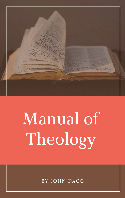
Dagg Manual of Theology (and links to this work in various other formats).
Dagg Manual of Theology (MySword for Android)
Dagg Manual of Theology (theWord Bible Format)
Dagg Manual of Theology (esword format)
Dagg Manual of Theology (PDF Format)


